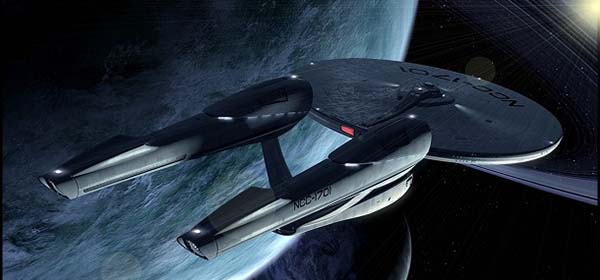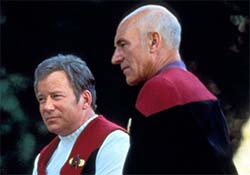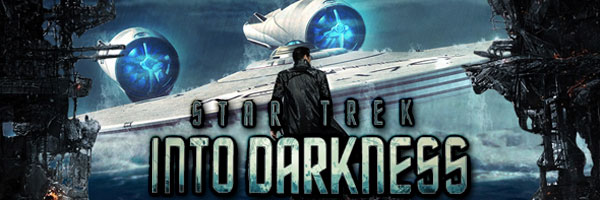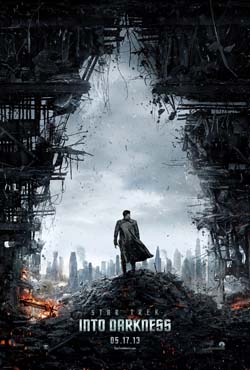I'm about to do something that has become a rather unpopular thing on the internet -- especially among liberal and progressive-minded people such as myself. I'm about to explain why I consider Rey to have been a "Mary Sue" in Star Wars: the Force Awakens.
I'm not doing this because I want to hate on the movies for the sake of hating them. I'm also not trying to hate on Daisy Ridley, and Daisy, if you read this, I want you to know that I think you did a fantastic job with the material that was given to you. I'm being critical because I want the movies to be better than they are. I have very high standards and expectations when it comes to Star Wars, and I feel that Disney's efforts so far have been sub-par. So much so that I often find myself using phrases like ... sigh ... "to the prequels' credit". I hate having to say that. It makes my skin crawl every time. I'm at a point, however, in which I find myself pointing out merits in the prequels as a point of contrast against flaws that I perceive in Disney's Star Wars films, as if one set isn't better or worse than the other; but rather, that they are just ... different.
I don't hate Rey. I am critical because I want these characters to be better.
So even though this is kind of old news that's been beaten to death for over two years, let's talk about Rey for a moment. And regardless of which side of this issue you fall on, I hope that you read the following with an open mind. And if you disagree, then that's fine. I'm not going to fight you over it.
"Mary Sue" is a subjective qualifier
Let's start with some background. The definition that I use for a Mary Sue is:
A fictional character (often appearing in fan fiction) who is primarily a vehicle for wish-fullfillment (usually being a self-insert stand-in for the author), and who is unjustifiably-competent in multiple fields -- if not everything.
Typically, these characters are good at everything they do. They get along with other established characters exceedingly well (sometimes even being romantically pursued by one or more of the canonical characters). They have few (if any) flaws. They are an idealized character who is essentially a "perfect" character within the fiction. They are also -- pretty much by definition -- characters who are added to a fictional setting long after its initial establishment.
The term "Mary Sue" is derived
from Star Trek fan fiction.
The term originated in Star Trek fan fiction, having been coined in 1973 after the publication of a parody story "A Trekkie's Tale" in the fan magazine Menagerie. This particular story (written by Paula Smith) was about a 15-year-old female character named Mary Sue, and it satirized the unrealistic nature of many characters in other fan fiction stories. Lieutenant Sue was the youngest Lieutenant in Starfleet and was an expert in virtually everything she did. She was "the best and the brightest" of Starfleet.
First off, I want to get one thing straight: whether or not a character is a "Mary Sue" is a subjective opinion. Whether or not any individual reader or viewer considers a given character as a "Mary Sue" is going to depend greatly upon where that individual draws the line between "justifiably-competent" and "unjustifiably-competent". That line will vary from person to person, and from fictional universe to fictional universe. I draw that line at a much different place for Star Wars than I do for Star Trek. In addition, this line is not always a hard or clear-cut line. It might be very fuzzy. The fuzziness of the line will also vary from person-to-person and from fictional-universe-to-fictional-universe. It's all on a continuum. Even within a single fictional universe, one character may be " more Mary Sue-ish" than another character.
Identifying a character as a Mary Sue also does not necessarily mean that the work of fiction (or even the character) is inherently bad. [More]
33b6a16d-ced8-4021-861e-c99f868a24d4|0|.0
Tags:Mary Sue, fan fiction, Star Wars, Star Wars: The Force Awakens, Star Wars: The Last Jedi, Disney, Rey, Daisy Ridley, Luke Skywalker, The Empire Strikes Back, Return of the Jedi, the Force, Jedi, Jedi Mind Trick, James Bond, Harry Potter, Sherlock Holmes, Neo, Superman, Doctor Who, James T. Kirk, Star Trek, Wesley Crusher, Gene Roddenberry, canon, women, sexism, gender, equality, gender equality

Rumors regarding Star Trek 3 (working title) are starting to fly around as of late. It has already been confirmed that Roberto Orci will direct Star Trek 3, since J.J. Abrams is directing Star Wars Episode VII. While I've already expressed my distaste for Orci's (and Kurtzman's) scripts for the new Star Trek movies, this new movie is also going to feature new writers J.D. Payne and Patrick McKay. Hopefully, these two can put together a more coherent script than Orci and Kurtzman did for Into Darkness.
A new rumor that surfaced in the past few weeks is that director Roberto Orci may have contacted William Shatner about reprising his role as James T. Kirk in the new movie. Shatner has supposedly said that he would love to be included, but Orci has not confirmed whether or not Shatner will actually appear in the movie. According to the rumors, Orci has written a special scene for the movie in which Shatner and Leonard Nimoy would reprise their roles as Kirk and Spock on-screen one last time, in honor of the 50th anniversary of the premiere of the Original Series.
While there is merit in such a tribute, I really don't think it's necessary, and there is plenty of reasons for fans to be worried about such an inclusion.

Shatner may return for one last
Star Trek adventure.
First and foremost, Nimoy already handed off the baton in the 2009 reboot. His presence in Into Darkness was completely unnecessary and contrived. We don't need a similar scene in the next movie, too!
The whole point of these new movies is to go to new places and do new things with new characters. Not constantly bring back old characters and events that have already been done.
This news about Shatner really deflates any excitement that I may have had about other recent rumors stating that the new movie is going to take place in deep space as part of the Enterprise's five-year-mission of exploration... [More]
b2e88229-eb7b-4bf5-8ead-ae8b6273a8ed|1|5.0
Tags:Star Trek, Star Trek 3, Star Trek 13, Roberto Orci, William Shatner, James T. Kirk, Leonard Nimoy, Spock, Enterprise, Guardian of Forever, the Deadly Years, time travel

Who doesn't like a good hamburger?
Hamburgers are a pretty casual, always-tasty meal that can range from a bland and simple fast-food cheeseburger to a gourmet bacon burger.
Me, I'm a big ribs guy! They're my favorite. Lone Star Steakhouse always made the best ribs - ribs fit for a Caesar's Memorial Day barbeque - but it's hard for me to say "no" to just about any rack of ribs. Sadly, all the Lone Stars in town are closed, and I've yet to find a true successor.

How does this relate to Star Trek Into Darkness? The original Star Trek series and Star Trek: the Next Generation are like those Lone Star ribs to me. They're my favorite. A really good science fiction movie - like 2001: A Space Odyssey, or Terminator, or Moon, or maybe even the recently-released Oblivion - is like a visit to [say] Famous Dave's to have some ribs. It's good, but it's still not Lone Star good! These new Star Trek movies, however, aren't even like ribs to begin with. They're more like hamburgers. Yeah sure they're a satisfying meal, but sometimes, I don't want a hamburger; I want ribs!
Into Darkness isn't what I wanted in a "Star Trek" movie at all. Even worse, it's worth as a movie is mostly superficial.
Into Darkness reminded me a lot of two other Star Trek movies: Star Trek V: the Final Frontier and Star Trek Nemesis.
The Final Frontier is widely-regarded as the worst original-cast Star Trek movie (and rightfully so). It's premise is silly. The script is poorly-written (although still much more coherent than many of today's movie scripts - including Into Darkness). And the special-effects are atrocious! It was like one of those really bad episodes of the original series brought to life on the big screen with a slightly higher budget. But it did have one redeeming characteristic. The beginning and end of the movie consist of the camping scenes with Kirk, Spock, and McCoy, and these scenes are actually really good. They're character-driven scenes in which we learn a little bit about the adventurous spirit of Kirk, his greatest fear, and the desire to explore that drove him to join Starfleet. It manages to further develop a character that had been around in movies and television for over 20 years, and whom one would have thought couldn't be further developed at all.
Kirk: I'm not trying to break any records. I'm doing this because I enjoy it. Not to mention the most important reason for climbing a mountain...
Spock: And that is ... ?
Kirk: Because it's there.
-Star Trek V: the Final Frontier
As bad as that movie was, this simple exchange in this simple scene exemplifies what Kirk, Starfleet, and Star Trek are all about: the desire to go out there and experience the universe! Even if it's dangerous, the rewards of the experience, and the discovery that it brings is worth the risk. This is one of the prime ideologies behind Star Trek. Sure we could send probes out to collect data and send it back to us in the comfort and safety of our laboratories on earth. But why do that when we can go there and experience the universe for ourselves?
And that is a spirit that is sadly missing from Abrams' interpretation of Star Trek. Why does Kirk join Starfleet? Is it because he has a passion for adventure and discovery and expanding the horizons of human experience? Not according to these movies. In these movies, he does it because Captain Pike dared him to. Or maybe because he wants to pursue hot alien pussy, because both movies still treat Kirk like a cartoon horn dog whose eyes pop out of his head whenever a skirt walks by. [More]
337feb10-4d20-45e4-8feb-82ef7d7b0050|2|5.0
Tags:Star Trek, Star Trek 12, Star Trek Into Darkness, J.J. Abrams, Chris Pine, Zachary Quinto, Benedict Cumberbatch, Karl Urban, Simon Pegg, Bruce Greenwood, Peter Weller, Alice Eve, Leonard Nimoy, Ricardo Montalban, James T. Kirk, Spock, Montgomery Scott, Scotty, Leonard "Bones" McCoy, Uhura, Carol Marcus, James Harrison, Khan Noonien Singh, Klingons, Enterprise, Starfleet, Federation, Prime Directive, Star Trek: the Next Generation, Who Watches the Watchers?, Star Trek: the Motion Picture, Star Trek II: the Wrath of Khan, Star Trek V: the Final Frontier, Star Trek VI: the Undiscovered Country, Star Trek Nemesis, Silent Hill Homecoming, Lone Star, ribs, burger, Famous Dave's, reboot, movie
|

| 12 | | | | | | | 60 | | 11 | | | | | | | 55 | | 10 | | | | | | | 50 | | 09 | | | | | | | 45 | | 08 | | | | | | | 40 | | 07 | | | | | | | 35 | | 06 | | | | | | | 30 | | 05 | | | | | | | 25 | | 04 | | | | | | | 20 | | 03 | | | | | | | 15 | | 02 | | | | | | | 10 | | 01 | | | | | | | 05 |
|